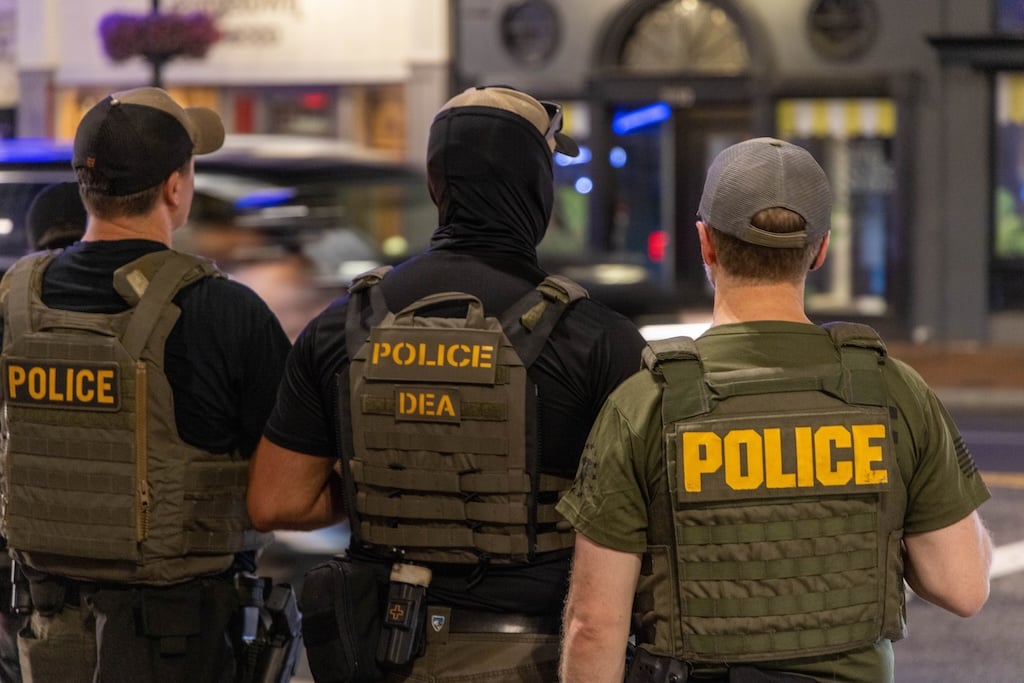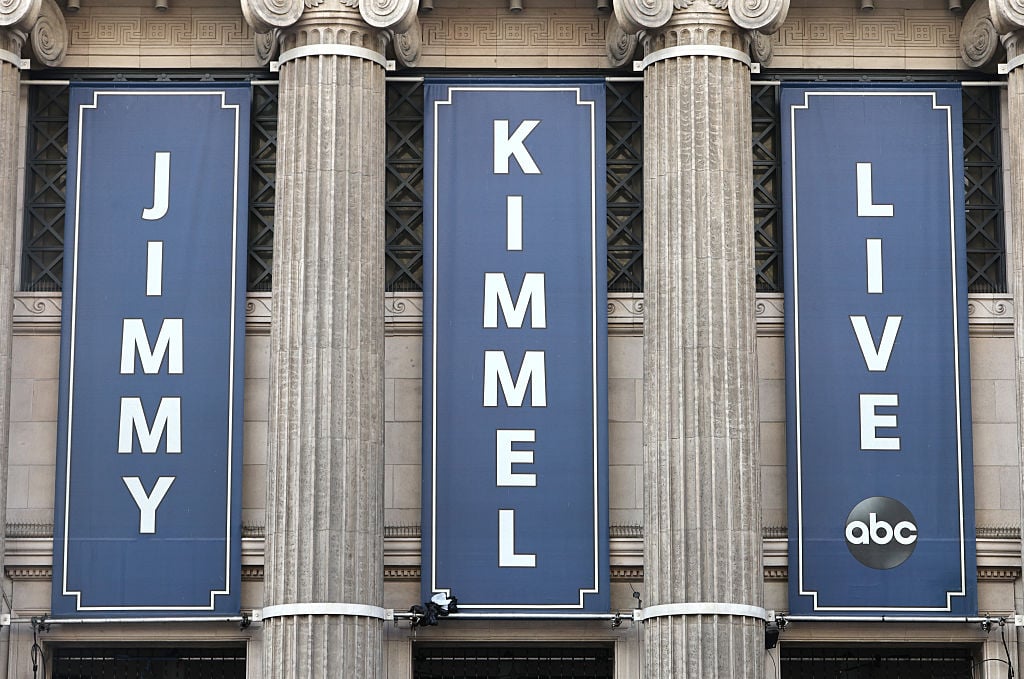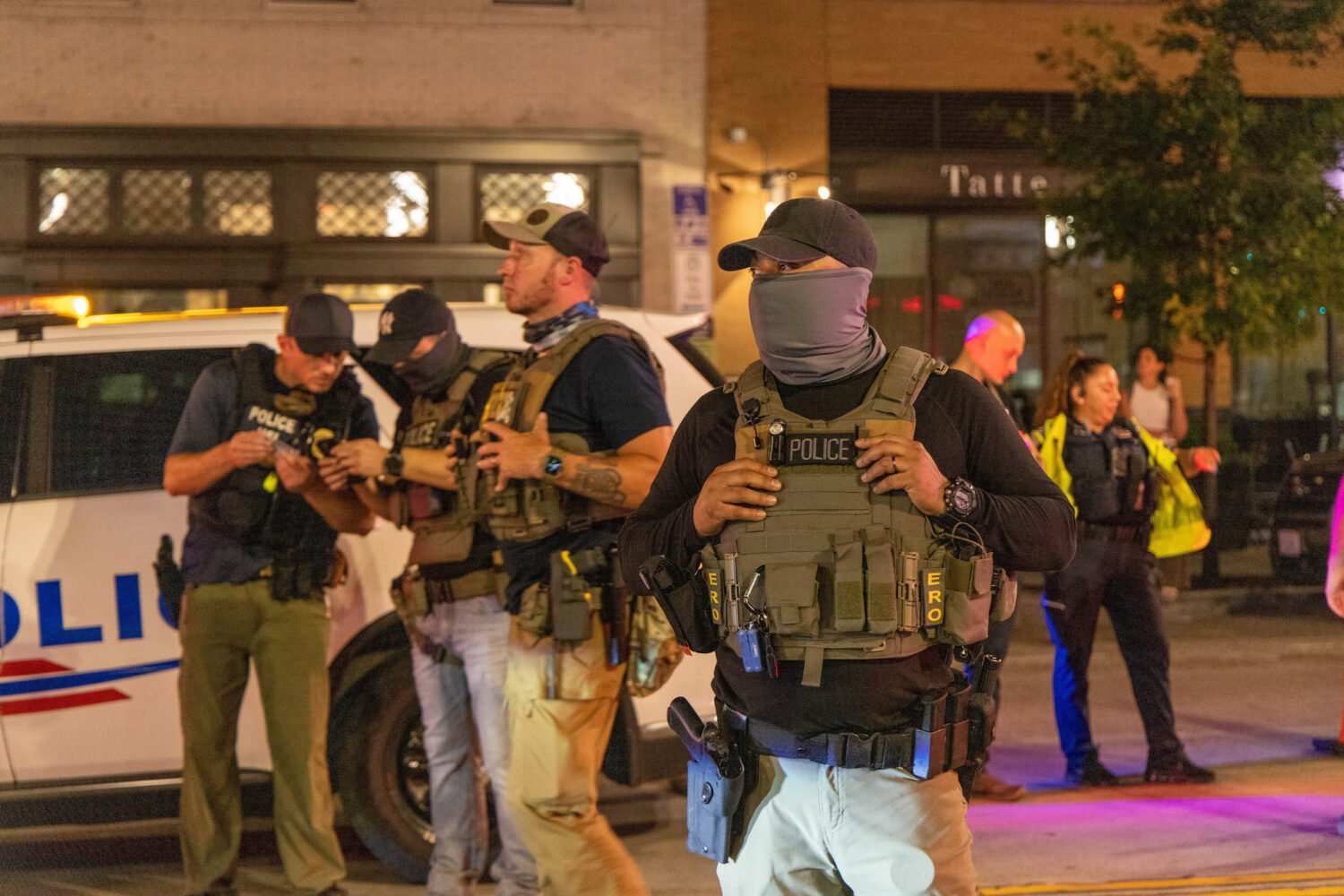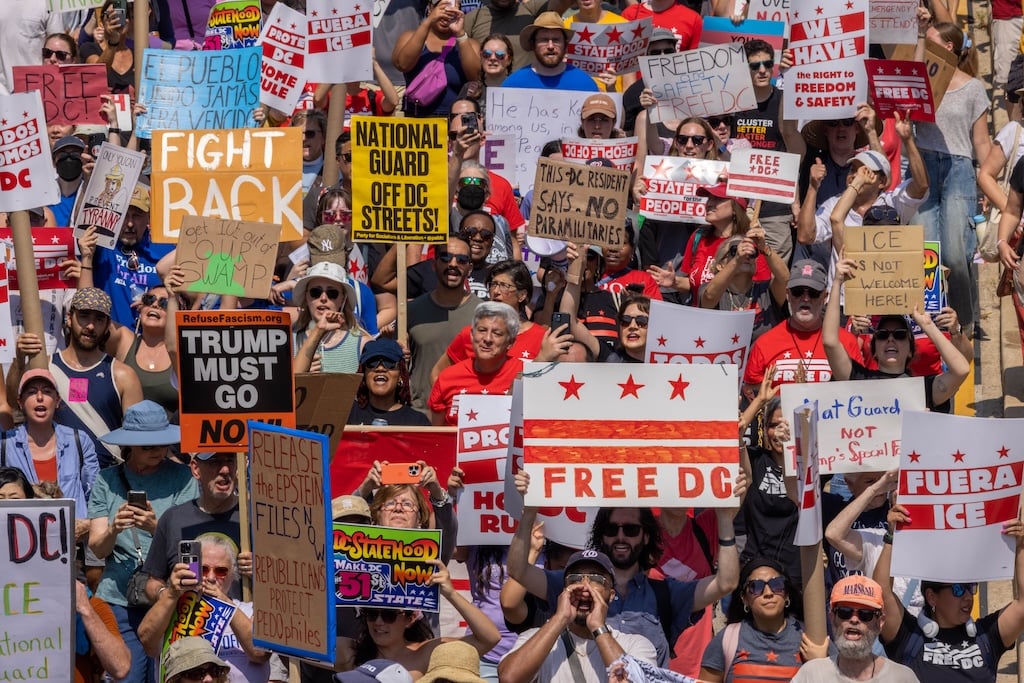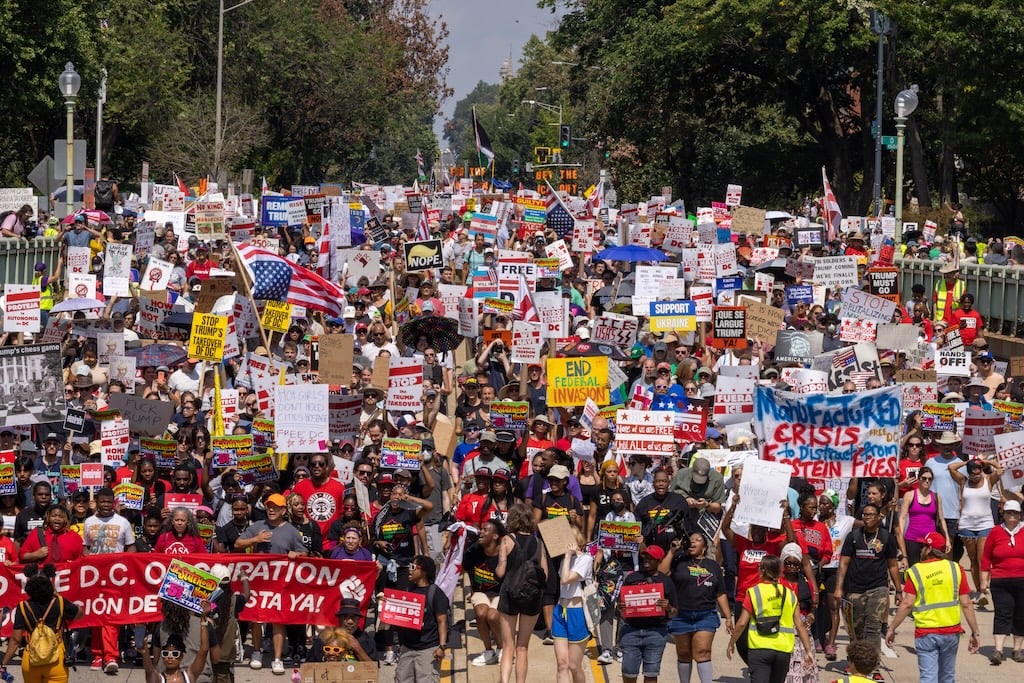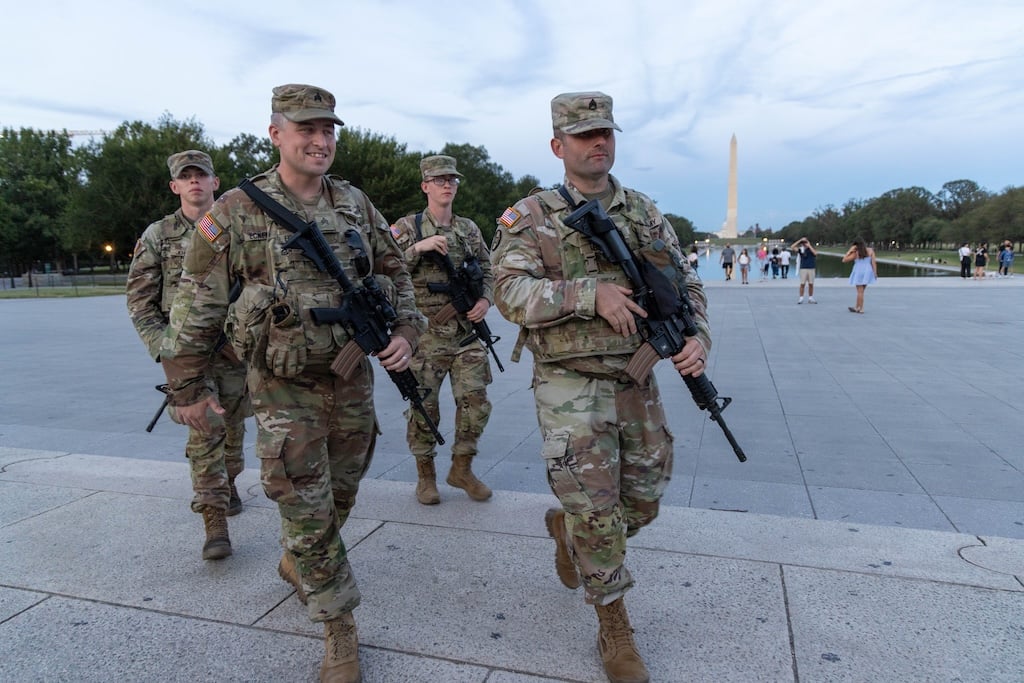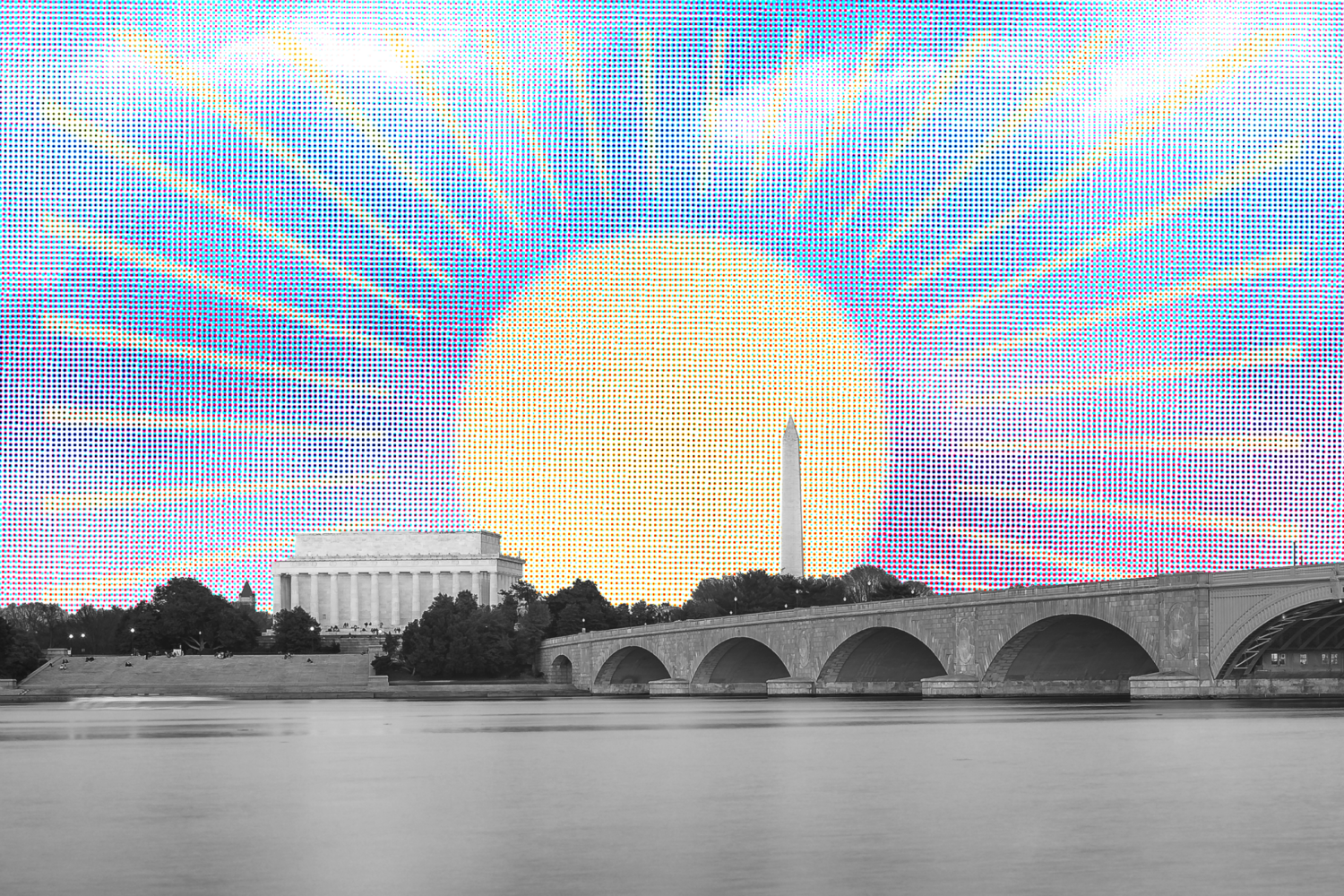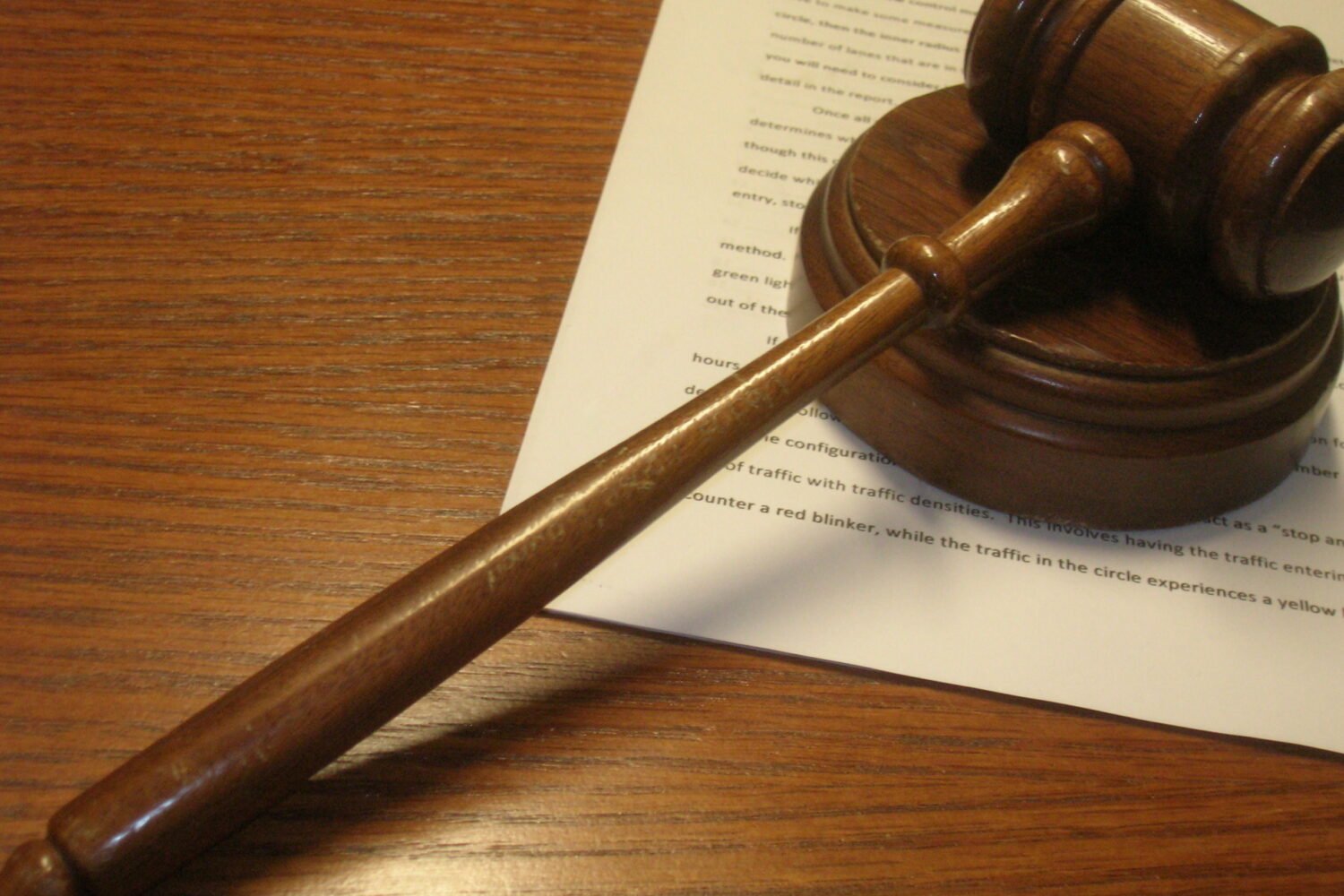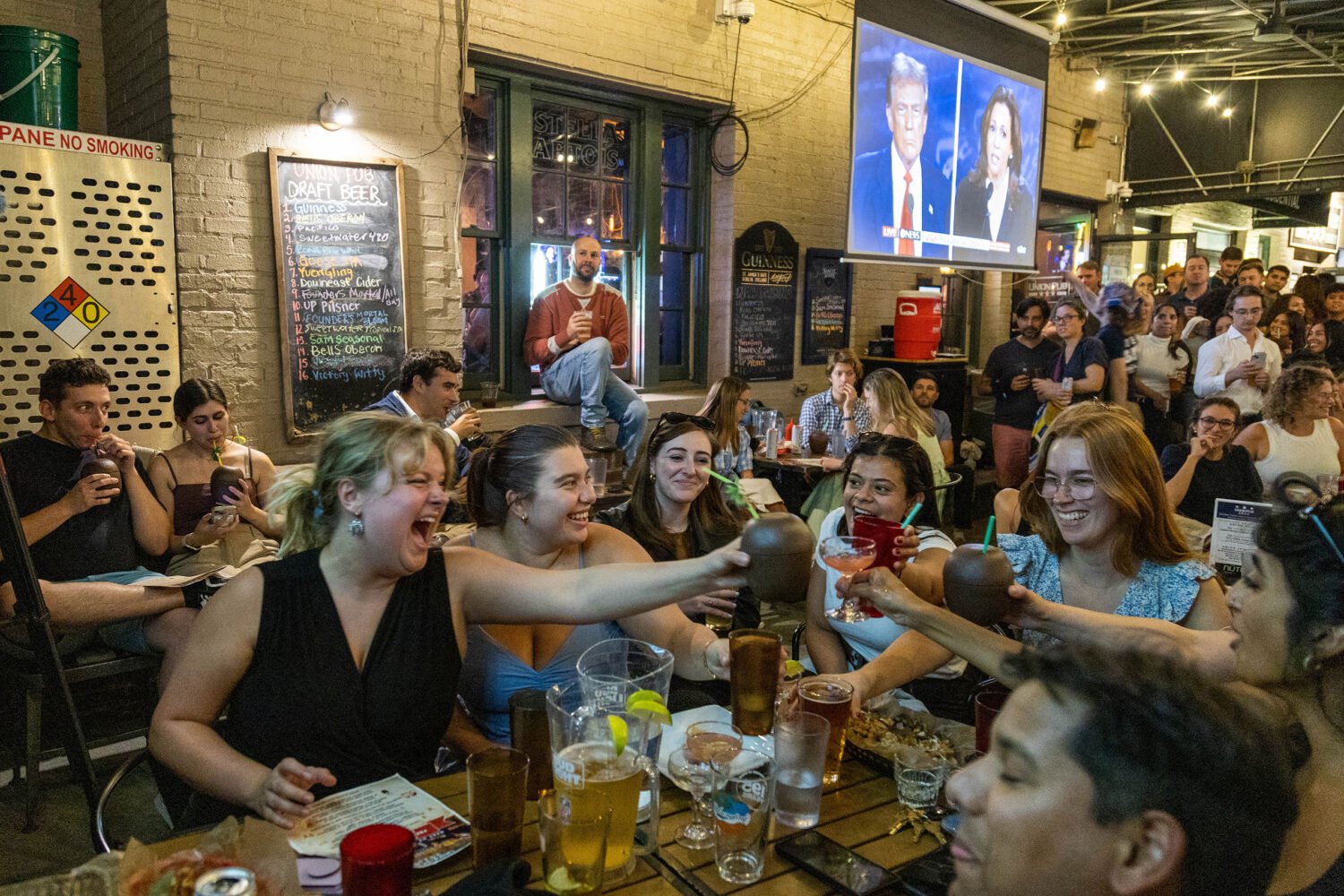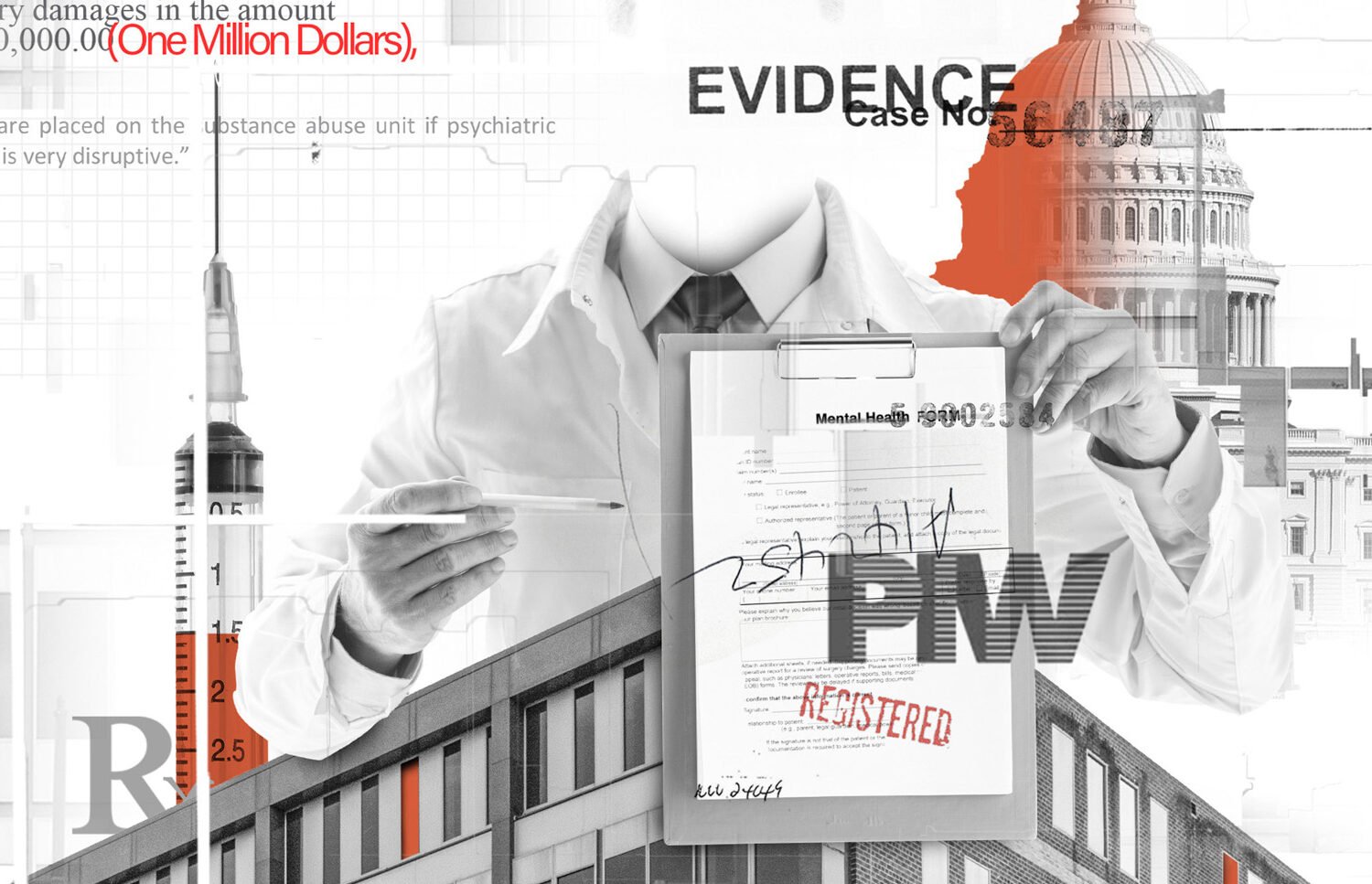Community leaders in DC’s neighborhoods most affected by violent crime are largely critical of President Trump’s decisions to federalize Washington’s police department, put federal law enforcement officers on District streets, and to deploy 800 National Guard troops here. They say that violent crime—much of which is concentrated in their neighborhoods—deserves a serious and thoughtful approach rather than being used to further Trump’s political agenda.
“I really don’t care who’s in power, because it’s not about politics, because the people east of the river have to live with any administration, and we want to work with any administration to get things done and make life better for people east of the river,” Lamont Mitchell, chair of the Anacostia Coordinating Council, says. “My life is not a political football. I’m a senior, and I want my neighborhood to be safe.”
To that end, Mitchell’s group has worked over the years to reduce violence east of the river; in the spring it gave an earful to Ed Martin, Trump’s first pick for US Attorney for DC, who got an earful from the crowd for what they saw as Martin offering glancing solutions to the very real problems of crime in the District.
Mitchell thinks federal law enforcement can play a role in reducing crime in DC, but the approach should be coordinated and primarily focused on getting illegal guns off the street. He was particularly vexed that for all of Trump’s bluster at his press conference Monday, the President didn’t talk about the role of guns in driving violent crime. “We don’t need the National Guard,” Mitchell says. “But we do need the ATF, and we do need other law enforcement to find out where these guns are coming from and help get guns off the street.”
On Instagram Monday, DC Council member Trayon White, who himself faces federal bribery charges, said he saw a role for federal law enforcement, writing that Trump “is not totally wrong on this one as long as citizens rights are not violated and we get the other services.” He also wrote that “police alone can’t end crime” and called for “more after school programs, housing support, career placement, violence Interruptors, substance abuse services and more because we can’t arrest our way out of the problem.”
Other community leaders, like Robin McKinney, an ANC commissioner in Anacostia, added that DC’s issues with crime are going to require solutions that go beyond a temporary increase in law enforcement. “Something that has been going on for years can’t stop in 30 days,” she says. She also adds that in her view the DC police’s current approach has been working in part because of the relationships between local police and community members.
“We have worked so hard in this community, the numbers are getting low with crime—We have a long way to go—I would never say that we don’t,” she says. Chief Pamela Smith “built community engagement with the police officers, with her officers, to try to build that trust with the community. And one thing that the Chief Pamela Smith spoke on, she don’t want to lose that trust.”
Stuart Anderson, the director of Family & Friends of Incarcerated People, has been involved with efforts to address violence east of the Anacostia River for years. He, like McKinney, thinks it’s important that people trust the DC police and worries the presence of federal law enforcement might erode that trust and impede proper policing.
“What is ICE doing east of the Anacostia River in DC? What are they doing, except for practicing on Black folk?” he says. “I can’t see how any of these efforts will do anything to help address violence. I think that what it will do, it will create mayhem in our streets. It will cause many of our seniors to be even more fearful.”
“The relationship between the police and Black folk, we got to change that,” he adds. “And here I am doing everything that I can to try to help change that. And then we get a president like this who decides that he wants to do this because DC voted 90% against him.”

